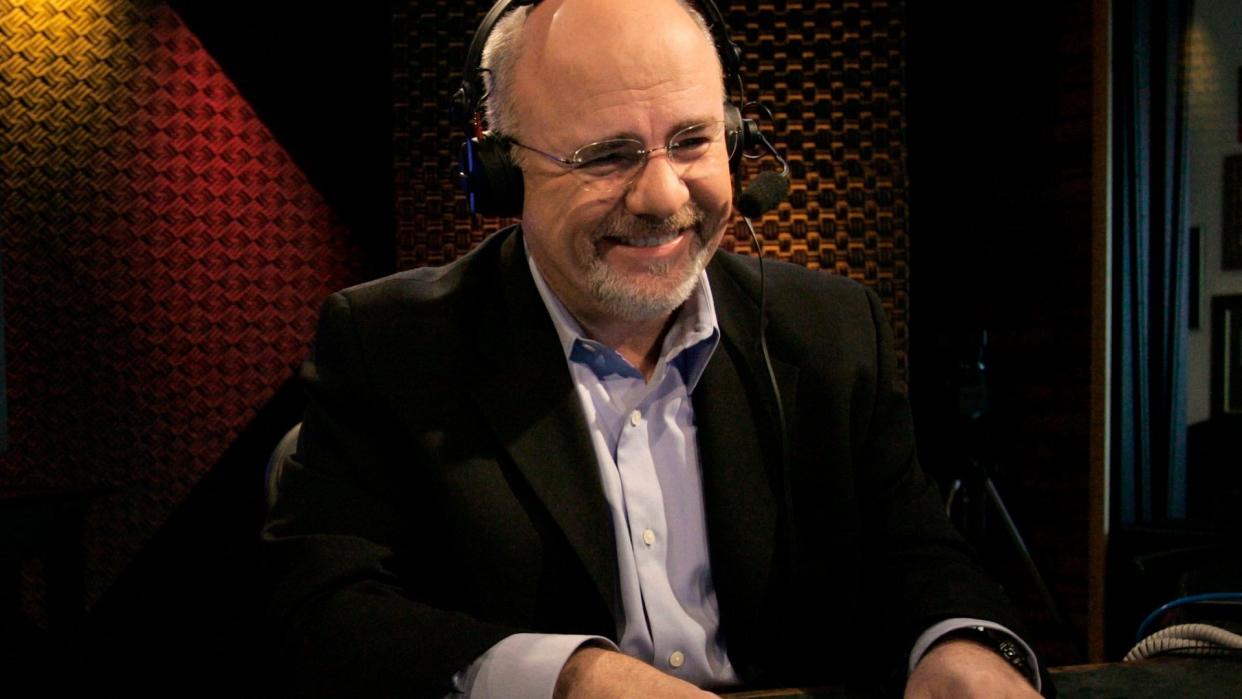Dave Ramsey Says You Don’t Need a Credit Card — What You Should Consider

There is one thing that all money experts agree upon: Be fiscally responsible — debt needs to be eliminated as soon as reasonably possible. Not surprisingly, radio host and financial guru Dave Ramsey recommends using debit cards over raking up mountains of debt with credit cards.
Learn: Dave Ramsey Says 401(k)s Have a Big Tax Downside – Pick This Retirement Plan Instead
Explore: 3 Signs You’re Serious About Raising Your Credit Score
In a “How to Cancel a Credit Card” post on Facebook, Ramsey got right to the point: “Debt is DUMB. Cash is KING. A debit card will do everything that a credit card can do, EXCEPT put you into debt.”
As a regular contributor on the Ramsey Solutions website and someone who successfully paid off $460,000 in debt, Jade Warshaw knows the dangers of credit and how to thrive without using it.
“A life without credit cards is a life of freedom,” wrote Warshaw. “No more credit card bill after credit card bill. No more collection calls. No more worrying if you’ve missed a payment. And no more having to use your paychecks to pay for the past.”
Does that mean you should grab your scissors and start slicing up your cards immediately? Not necessarily. Cash and debit cards might not meet all your needs, but looking at the reasons to use credit cards might give you food for thought. More often than not, we are clinging to credit out of habit rather than tackling debt head on.
Building Credit
Carrying credit cards and managing debt over the years is the most common and easiest way to build your credit score. Being able to get them at a young age means you’ll be able to achieve a creditable FICO score, which is used to assess a borrower’s credit risk. You can’t build credit with a debit card, however, you can get still buy a house or car without a history of credit card debt.
Related: Why Stealth Wealth Is the Best Way To Handle Your Money
Being responsible with your earnings, and having substantial savings rather than substantial debt will put you in good stead for any large life purchase. If you diligently pay your bills on time, you can look into Experian’s Boost program, which allows consumers to add additional on-time payments to their Experian credit report by linking their bank account. Likewise, getting a credit-builder loan or signing up as a registered user on someone else’s card are ways to build better credit.
Earning Rewards
The basis for getting a new credit card or transferring a balance from an existing card often comes down to the perks and rewards being offered. Credit card companies are in constant competition to get your business, so there are a lot of enticing reward, points or travel programs available. Shoppers love getting cash back on everyday spending, like groceries, gas or travel purchases.
If you pay off your charges every month and frequently use your card’s rewards, then holding on to them might be the wisest choice for you. However, remember that you have to spend considerably to get any meaningful rewards or cash back. As Warshaw said, “Credit card companies wouldn’t have rewards if they weren’t already making a ton of money off their customers. It’s a rigged game.”
Fraud Protection
Generally, credit cards offer better fraud protection than debit cards, and much better protection than getting your cash stolen! As Forbes noted, with deceitful debit card activity, there is no guarantee that you’ll get a refund on fraudulent purchases and replacing funds to your checking account can take a long time depending on the institution or situation.
More: How Much Money Experts Say You Should Have in Your Savings Account If You’re in Your 50s
This last point is crucial. While most debit cards have similar protections as credit cards, a drained account might not be replenished for a long time, and this could affect your personal finances and might cause you to miss paying bills or make payments, thus affecting your credit score. Debit cards are backed by major companies and offer secure purchasing and insurance against fraud, but you might feel better knowing you have “zero liability protection” of a credit card on your side.
For Emergencies
Keeping a credit card around in the event of an emergency is fine, as long as you have cash to pay off the balance before interest starts accruing. But emergencies are typically expensive, so they aren’t ideal to use them in a crisis.
Creating an emergency savings fund of three to six months of living expenses — how much it would cost you to get by — is a better approach to tap for financial assistance. The loss of a job or a medical emergency is a traumatic experience enough without the added pressure of having a big bill payment hanging over your head.
Booking a Hotel/Renting a Car
The old standby reason used by credit card supporters — that they’re absolutely needed to rent a car or book and hotel — still holds water, but not much. This reservation requirement is largely a thing of the past, with most of the major rental agencies and hotel brands now accepting debit cards for initial deposits and final payments.
See: 10 Smartest Ways to Make Your Money Work for You, According To Experts
Find: The 5 Fastest Ways To Become Rich, According To Experts
However, you might run into complications more frequently when you use a debit card rather than a credit card, depending on where you are staying or renting. According to Forbes, “Some companies will take a hefty deposit from your checking account if you use a debit card, which could tie up your money for days.”
More From GOBankingRates
This article originally appeared on GOBankingRates.com: Dave Ramsey Says You Don’t Need a Credit Card — What You Should Consider
